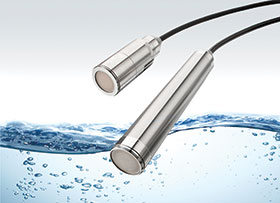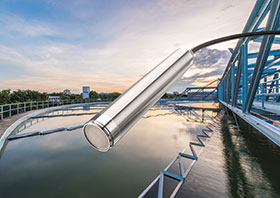
The National Water Act of 1998 in South Africa has put in place stricter regulations for water management. This includes the mining sector, which is a significant source of water contamination. To promote greener mining operations that minimise environmental impact and optimise resource utilisation, responsible dewatering practices are essential. Water scarcity is a pressing concern in South Africa, leading to the establishment of stricter regulations on water discharge and management. These new regulations have significantly impacted the mining industry. However, mines can foster environmental responsibility and operational efficiency within their operations by employing effective dewatering strategies. For mining and mineral processing activities, water management is of major importance, and water management strategies need to comply with stringent environmental and social responsibility regulations. Effective water management strategies also contribute to a more sustainable mining future.

Mitigating environmental impact
While crucial for extracting valuable resources, opencast mining has a considerable environmental footprint. Responsible management of dewatering wells offers a solution, mitigating the impact. Lowering the water table around the excavation area helps maintain stable pit walls, reducing the risk of collapses and landslides that can pollute nearby waterways with sediment.
Secondly, mine water can be treated to minimise contamination of surrounding groundwater sources by minerals or pollutants. Despite the benefits, dewatering wells presents a significant challenge. Maintaining stable excavation walls and preventing flooding necessitates constant management of groundwater levels, often requiring continuous pump operation. Uninterrupted operation can lead to pump blockages becasue of sediment buildup, potentially causing catastrophic equipment failure.
The solution lies in a delicate balance between efficiency and precision. By ensuring a continuous flow of water, pumps can prevent blockages. This necessitates highly accurate level measurement in each well, some of which can reach depths of 750 metres. Real-time data from these measurements allows for precise pump operation, guaranteeing continuous water flow without wasting energy.

VEGA offers technological solutions that can assist in sustainable dewatering. The VEGAWELL 52 hydrostatic pressure transmitter is capable of accurately measuring the level of water and wastewater. With a cable length of up to 1000 metres, it is an ideal level measurement sensor for deep wells and basins. It offers a robust design and features an abrasion-resistant CERTEC ceramic measuring cell, ensuring continuous operation that helps prevent pump blockages. The accurate and maintenance-free measurements of the VEGAWELL 52 can result in a significant reduction in pump operating costs as the precise level data obtained enables optimised pump operation, leading to lower energy consumption.
Mines can now achieve a more environmentally friendly approach to efficient pump operation and reduced energy usage. Precise measurement through VEGAWELL 52 fosters efficient pump operation, minimising energy consumption and environmental impact in dewatering systems. It offers numerous benefits in mining operations, and enables continuous operation to help prevent pump blockages.
This not only benefits external stakeholders by enhancing water control, but also provides direct and immediate value to mines by protecting infrastructure through better control mechanisms. Green mining practices like these are crucial for minimising the environmental footprint of essential mineral extraction, while ensuring operational efficiency.
| Tel: | +27 11 795 3249 |
| Email: | [email protected] |
| www: | www.vega.com/en/home_za |
| Articles: | More information and articles about VEGA Controls SA |

© Technews Publishing (Pty) Ltd | All Rights Reserved